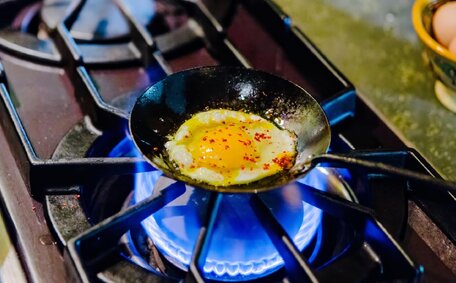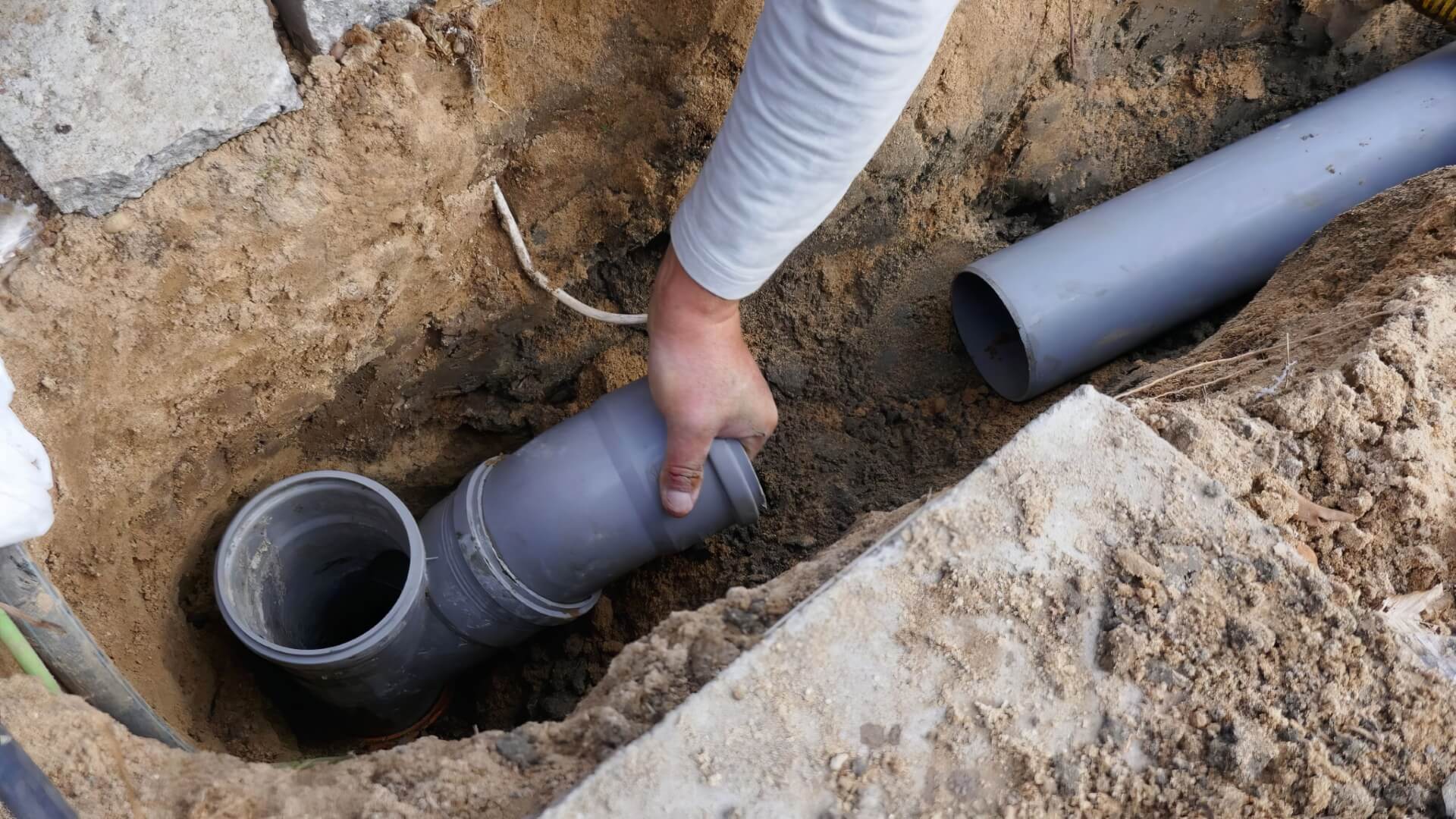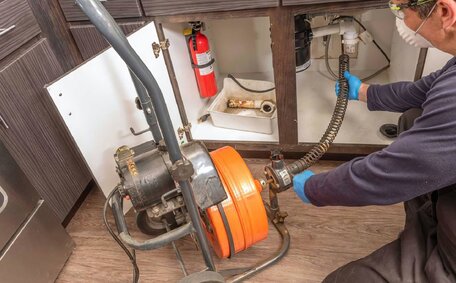Introduction: The Relationship Between Drain Blockages and Water Pressure
Optimising your drains through regular maintenance is crucial for ensuring proper water flow, which is essential for any home or business. Clogged drains with accumulated debris can create a ripple effect, impacting water pressure throughout the plumbing system. This article explores how blocked drains can cause low water pressure in your home.
This article will clarify the causes of drain clogs, explain how they reduce water pressure, describe the lasting damages of neglect, and outline resolutions. Expert insights on advanced solutions like hydrojetting and drain cameras, which can prevent future blockages, will also be provided.
Readers will gain insights on the impact of low water pressure and receive practical advice on managing their plumbing systems.
What Causes Drains to Become Blocked
There are several common causes of blocked drains, including:
- Accumulation of debris such as food scraps, hair soap, lint, and other domestic refuse
- Pipe damage from tree roots invading and growing into sewer lines
- Hardened grease and fat sliding down drain channels and pipes
- Build-up of hair, mineral deposits, and soap scum in pipes over time
- Flushing unsuitable items like diapers, sanitary products, and baby wipes rather than disposing of them properly
- A partial or full collapse of ageing drain pipes
Small objects, dirt, and other materials can cling to the insides of pipes, slowly forming a breeding ground for clogs that restrict water flow. Over time, partial obstructions can progress to complete blockages, which can lead leaks to cause further complications.
The intrusion of tree roots into your sewer line can raise alarms, as they can lead to leaks and significant drainage problems. These roots can infiltrate the smallest cracks in sewer pipes, posing a risk to water pressure your home relies on. Once inside, thick roots take hold and expand, breaking pipes, Water pressure cause problems and major blockages.
Understanding the common causes of pipe blockages empowers you to avoid clog-related problems. Regular drain maintenance and proper disposal of waste can help keep your drains unobstructed.
How Blocked Drains Can Reduce Water Pressure
A clogged drain directly affects your plumbing system, leading to reduced hot water pressure. When a drain becomes clogged, issues in your hot and cold-water systems escalate due to low water pressure as it forces wastewater and sewage to back up, often culminating in backups and flooding.
Such blockages can undermine both hot and cold water lines, disrupting your system’s equilibrium. Maintaining a stable equilibrium within your plumbing system is pivotal for a steady flow of water, as all drains and pipes must work in harmony. A clogged drain disrupts this balance, which can force your supply lines to work harder to push water through.
Over time, the additional strain from blockages can distress pipes, adversely affecting pressures within your hot water system and leading to burst pipes or a potential plumbing leak. It can also lead to a water leak as water pressure rises to high levels, overloading your water heater, pressure valves, and possibly damaging fixtures like tapware or appliances connected to the system.
Blocked drainage results in diminishing hot water pressure, subtly at first, but rapidly becoming a significant issue. Warning signs include:
- Diminished water flow from your taps, less vigorous than normal
- Toilets, showers or sinks draining slowly
- Gurgling sounds from pipes and drains
- Foul sewage odours indoors
If you’re noticing low output from fixtures accompanied by these signs, it might be time to call our expert team for an underlying clog resolution. Catching and clearing blockages early is crucial to avoid expensive repairs down the track.
A professional plumber possesses the tools and expertise to locate and clear obstructions threatening your water system, passing through your clogged sewer. Proactive maintenance like hydrojetting can also help prevent recurring clogs before they affect water pressure.
Diagnosing Low Water Pressure Issues
Identifying the cause of your fixtures’ compromised water pressure, whether from a blocked drain or another issue, can be challenging and may require professional assessment. Here are tips on how to diagnose the problem:
- Check pressure at multiple faucets - If sinks, showers, and toilets all have decreased flow, a widespread blockage is more likely.
- Pay attention to drainage speed - Slow-draining fixtures indicate a potential clog in your water pipes.
- Stay alert and listen for gurgling sounds from pipes, which could suggest you should suspect a water leak.
- Consider when the issue first appeared and when symptoms became noticeable. Did drainage problems occur first?
- Check for signs like foul odours or pooled water indicating sewer backups.
If multiple drains are backing up often or you have sewage smells, your main sewer line could be blocked. Addressing this issue soon possible remains critical to forestall hazardous spills or water damage promptly.
Running diagnostic tests, including examining your water meter, can also help identify whether the issue lies with the water supplier or if it’s due to cracks in pipes or issues with your main water supply lines unrelated to drains. This process assists in pinpointing the true issue. A professional who can provide the tools and in-depth knowledge to thoroughly assess your plumbing fixtures is invaluable.
Low pressure can be an issue by itself and might mean you simply need a pressure regulator. But when in doubt, get assistance to ensure water your home relies on isn’t compromised. Catching a blocked main drain early makes getting rid of it much quicker and cost-effective!
Resolving Blocked Drains to Restore Water Pressure
Clearing obstructions within your pipes, which can cause low water pressure, is often the first step, particularly essential for sustaining low hot water pressure in your system. Before calling a plumber, you might want to try some of these safe DIY methods:
Use a Plunger
Plunging can help dislodge clogs in your shower drain, sinks, tubs, and other areas prone to blockages. When dealing with a possible clogged drain, fill your drain with a few inches of water, seal the plunger over the opening and plunge vigorously 10-15 times. Continue plunging until the clog loosens and water flow returns to normal.
Try a Drain Snake
We highly recommend manual and powered augers/snakes, devices that efficiently navigate pipes where water can become obstructed by debris. Slowly twist a hand crank snake into the drain until resistance is felt, then turn the handle back and forth to clear the clog.
Boiling Water
Pouring a full kettle of boiling water down the drain can help dissolve grease and soap buildup. Allow the water to sit for several minutes then flush with cold water.
Baking Soda and Vinegar
Mix 1 cup baking soda with 1 cup vinegar to address the build up and pour down the drain. Allow the fizzing reaction to work for 5-10 minutes before rinsing with hot water. This can break down organic material.
Regular repetition of these methods plays a pivotal role in preemptively addressing drain concerns before they fix into an issue. Calling a plumber for professional drain cleaning or hydrojetting is recommended if DIY options fail to improve water pressure.
Advanced Plumbing Solutions for Persistent Blockages
For stubborn clogs that withstand home treatments and contribute to low water pressure, your plumber can offer advanced solutions. Hydrojetting is an effective remedy, blasting blocked drains with high-powered water jets to scour the pipe’s interior and dislodge stubborn obstructions.
Specialist drain and sewer cameras are invaluable for identifying the precise location and nature of a blockage. Guided by real-time video inspection, the latest removing equipment can then target and eliminate root invasions, collapses, hardened grease or almost any clog.
These advanced solutions surpass the capabilities of standard tools, which may prove insufficient. Attempting to clear complex blockages without professional training risks further damaging pipes or spreading spills and contamination.
While the initial costs of hydrojetting may be higher than basic drain clearing, its superior outcome can prevent recurring clogs and more invasive repairs, thus saving money in the long run.
For households struggling with extensive root infestation or collapsed drains, full pipe relining or replacement may be required. Although it is a more costly option, renewing your plumbing system helps protect your water pressure for the long term.
Ultimately, difficult drainage issues seldom resolve on their own. At the initial hints of diminished water pressure, Soliciting an assessment from skilled local plumbers becomes highly advisable. Investing in advanced solutions now alleviates worsening problems in future.
Preventing Future Drain Blockages
Preventing drain blockages is the most effective strategy for maintaining long-term plumbing health. Start by being mindful of what goes down drains - Avoid pouring fats/oils or flushing unsuitable items that can cause pipes to start experiencing low flow. Install sink strainers and hair catchers to act as a stop tap for debris entering the system.
Ensure to maintain a healthy system by treating your drains with boiling water, baking soda, and vinegar to dissolve build-ups before they fully clog. Annual professional drain cleanings can also clear potential obstructions. Consider installing a shutoff valve to regulate flows and ensure they remain below 500 kPa, preventing strain on your plumbing fixtures.
If your property is prone to root invasion, consult a plumber about pipe relining or replacement to safeguard your water system. Investing in proactive maintenance to manage pressure your home experiences makes good financial sense compared to engaging an emergency plumber for sudden drain repairs.
The small habits we cultivate at home exert a significant influence on maintaining your water pressure and the longevity of our drainage system. Conscious waste disposal, regular drain treatment, and water pressure management can prevent expensive clogs.
When to Call a Professional Plumber
It’s time to utilise our service at Drummoyne Plumbing if you’ve tried DIY methods without success or are facing more serious plumbing issues.
Alarming signs that necessitate professional help include:
- Persistent drain clog issues or ongoing sewage odours
- Very low water pressure at multiple fixtures
- Leaking pipes, flooded areas or stagnant water where it shouldn’t be
- Backed-up sewer lines and drainage problems
- Sagging pipes, damaged drains or signs of root intrusion
Makeshift repairs on seriously blocked sewers, especially under high water pressure, can worsen problems over the long term. Our licensed plumbers, equipped with specialised tools and vast knowledge, provide expert solutions for diagnosing and resolving plumbing issues.
For prompt assistance with low water pressure, blocked drains, sewer backups or any concerning plumbing problems, contact your local professional team at Drummoyne Plumbing today on 1300 349 338 or at [email protected].
Clients have been satisfied with our services, which have proven highly effective in resolving costly plumbing issues.






